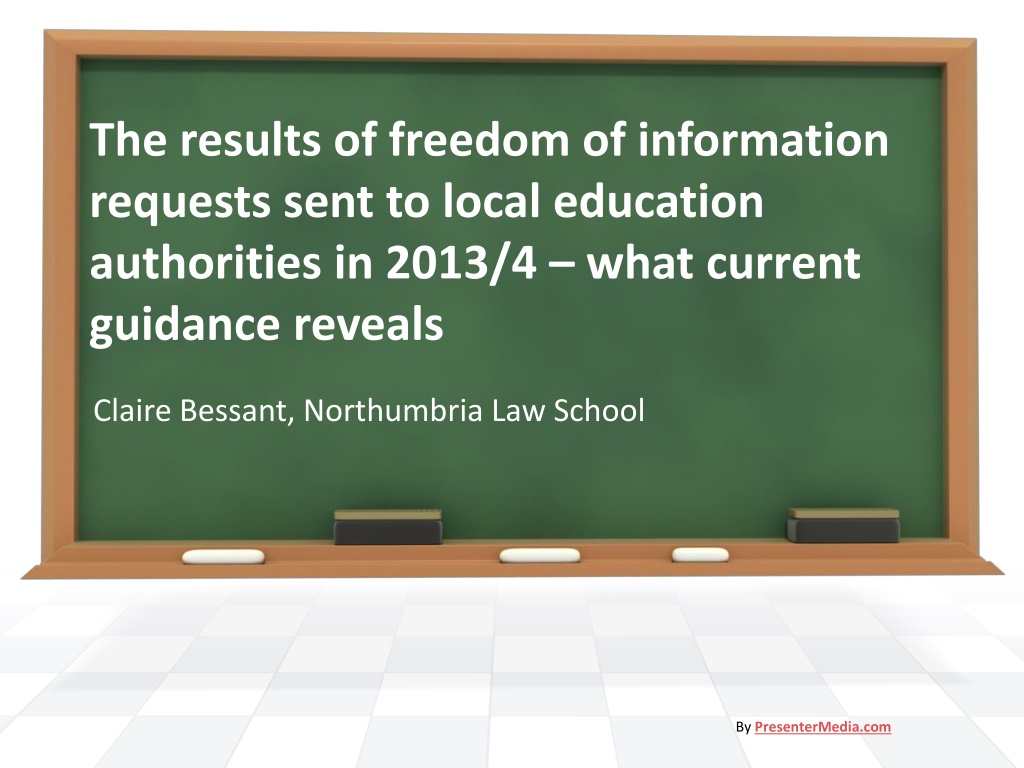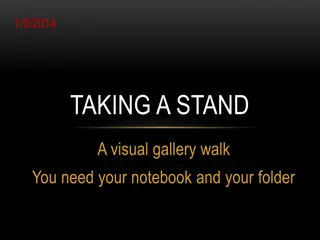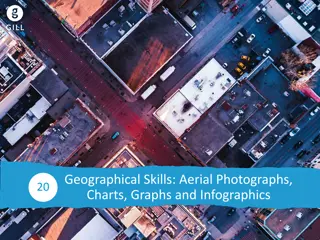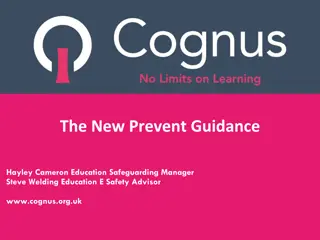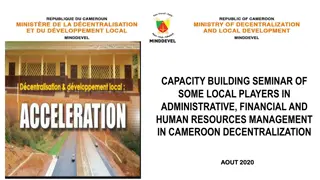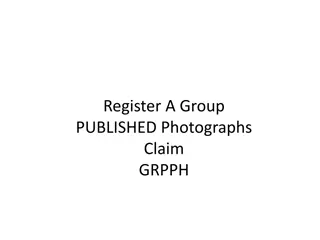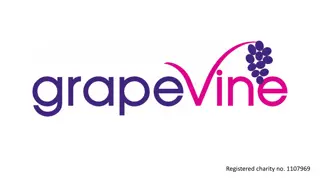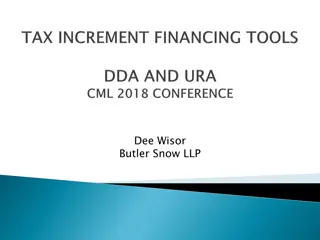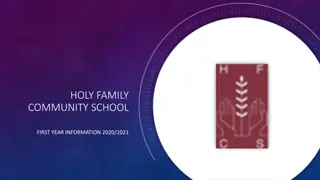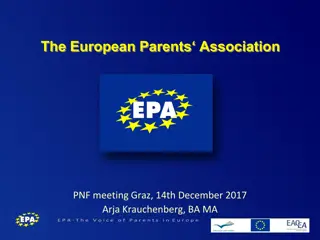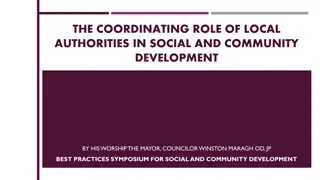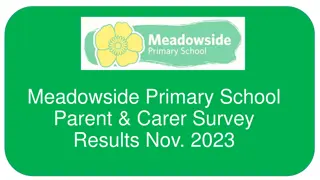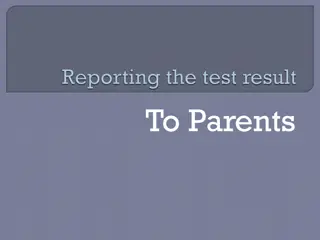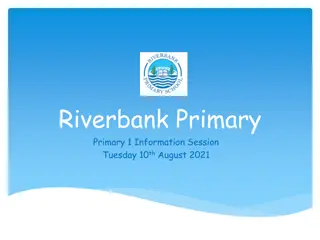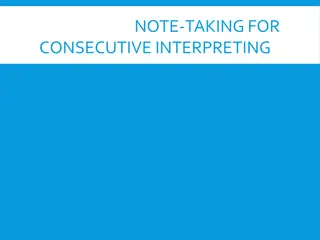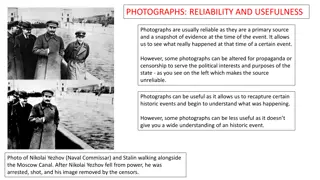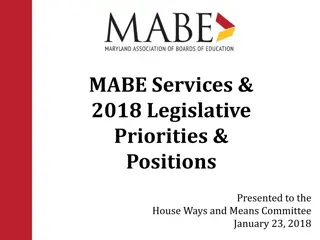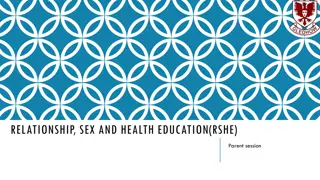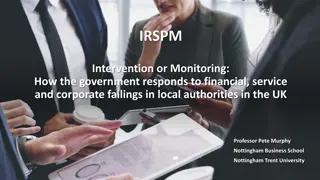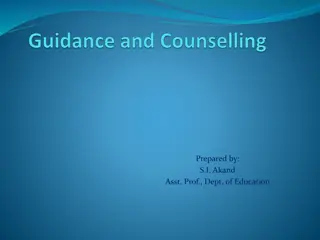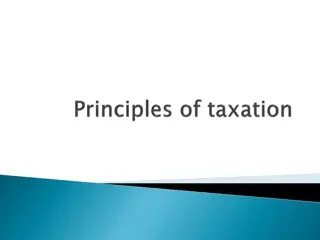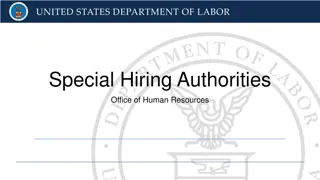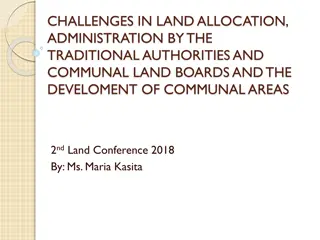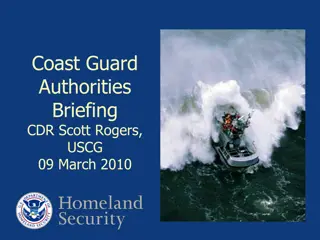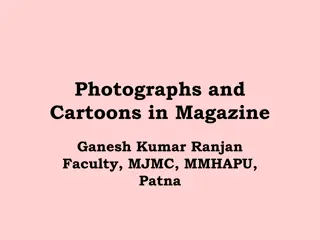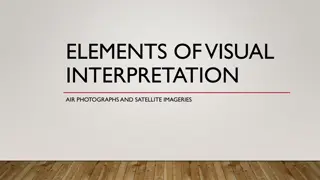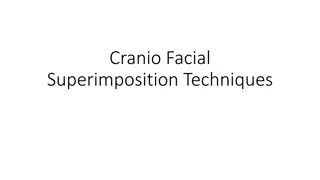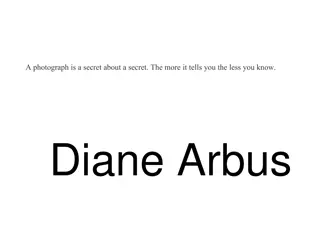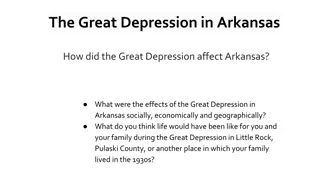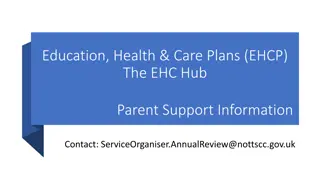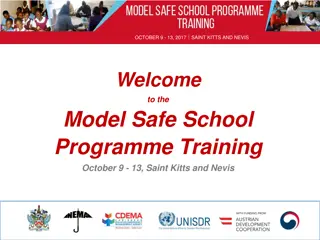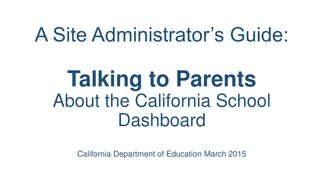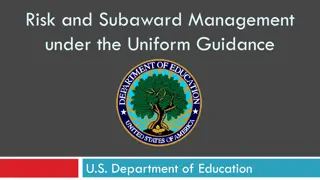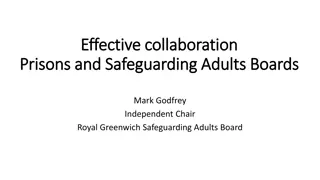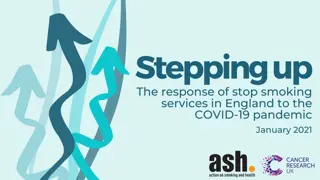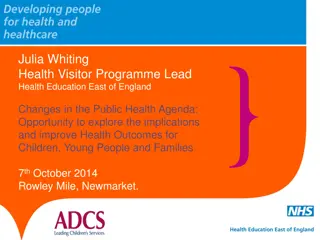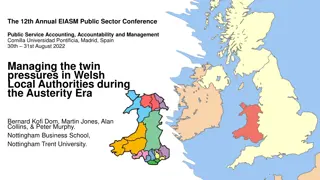Local Education Authorities' Guidance on Parents Taking Photographs at School Events
Research conducted in 2013/4 analyzed responses from local education authorities in England, Scotland, and Wales regarding guidance provided to schools on parents taking photographs at school events. Out of 206 authorities contacted, 198 provided usable responses, revealing varying approaches to guidance provision. Legal issues identified include data protection, privacy concerns, obligations to safeguard pupils, and parental rights to freedom of expression. The study sheds light on the complexities surrounding photography at school events amidst the digital age.
Download Presentation

Please find below an Image/Link to download the presentation.
The content on the website is provided AS IS for your information and personal use only. It may not be sold, licensed, or shared on other websites without obtaining consent from the author. Download presentation by click this link. If you encounter any issues during the download, it is possible that the publisher has removed the file from their server.
E N D
Presentation Transcript
The results of freedom of information requests sent to local education authorities in 2013/4 what current guidance reveals Claire Bessant, Northumbria Law School By PresenterMedia.com
The aim of the research To determine what advice local authorities provide to schools in relation to parents taking photographs at school events, and identify what legal issues apparently underpin the guidance
The research process FOIA requests made in December 2013 to every education authority in England, Scotland and Wales asking: Has the LA produced any guidance or policy documents which provide general advice to schools about whether or not parents/family members/carers are permitted to take photographs of children at school events, for example sports days, school plays and concerts? If so, is it provided to all schools in the area? If no guidance is provided has the authority received any ad hoc requests? If yes, what was the substance of the advice provided?
Responses received Number of authorities contacted 206 Number providing useable responses 198 Number failing to respond 8 Response rate 96%
How many local authorities provide guidance to schools in their area? Number of authorities who do not provide any guidance of their own or from any other organisation Number of authorities who do not provide guidance of their own but refer schools to guidance produced by the Information Commissioner s Office Number who do provide guidance (their own guidance or guidance from LSCB or area grid for learning) 74 28 96 (18 of these also refer schools to ICO guidance)
What are the possible legal issues? Data protection issues Privacy issues/breach of the child s right to respect for private life (Article 8 European Convention for the Protection of Human Rights) Obligations to safeguard the welfare of pupils (Education Act 2002) The parent s right to freedom of expression (Article 10 ECHR) NB OFCOM (2013) Adults Media Use and Attitudes Report - In 2013 64% of adult internet users had their own social network profile (p91). 17% of such social network users share video clips and other content online. [I]n 2012 more than 20% of those adults with a social networking profile were sharing photographs (p99)
ICO guidance ICO, Data Protection Good Practice Note on Taking Photographs in Schools (2005, 2007, 2010, 2014) suggests that if parents are taking photos/videos for personal use the Data Protection Act 1998 does not apply. They can snap away
The safeguarding issue Schools must carry out their functions with a view to safeguarding and promoting the welfare of children (s175 Education Act 2002 relating to maintained schools/s157 relating to academies/free schools) What might such safeguarding obligations entail? Preventing misuse of images (pornography, grooming) Protecting the identity/location of children/parents fleeing from violence Protecting the identity/location of children removed from their parents by the local authority
What about privacy? Article 8 ECHR: The concept of private life includes elements relating to a person s right to their image Sciacca v Italy App no 50774/99 (2005) 43 EHRR 20 [29] Campbell v MGN [2004] UKHL 22 the touchstone of private life is whether in respect of the disclosed facts the person in question had a reasonable expectation of privacy [21] . The question is what a reasonable person of ordinary sensibilities would feel if she was placed in the same position as the claimant and faced with the same publicity. [99]
Might a reasonable expectation of privacy arise at a school sports day or nativity? Murray v Big Pictures (UK) Ltd [2008] EWCA Civ 446 at [36] the question whether there is a reasonable expectation of privacy is a broad one, which takes account of all the circumstances of the case. They include the attributes of the claimant, the nature of the activity in which the claimant was engaged, the place at which it was happening, the nature and purpose of the intrusion, the absence of consent and whether it was known or could be inferred, the effect on the claimant and the circumstances in which and the purposes for which the information came into the hands of the publisher.
Which of the legal issues do Education authorities consider arise No who view parents taking photos at school as DP issue No who view parents taking photos at school as a safeguarding issue 55 41 (29 of these also consider it a DP issue) No who view parents taking photos at school as privacy/human rights issue 18 No who view parents taking photos at school as e- safety issue 12
Local education authority policies No restrictions on photography (The ICO approach) Photography allowed but parents told/must agree that photos not to be posted online Photography allowed but parents given clear advice on opting out/removing their children. Photos only at a designated time/place after/before the event (excluding certain children where necessary) No photos taken by school/parents unless consent provided by all parents/children No photographs by parents but school takes videos/photos for purchase by parents No photographs by parents or school
How do understandings of the legal issues affect the guidance offered Where an education authority perceives that parental photography is purely a DPA issue and relies wholly upon the ICO guidance it seems that they will almost without exception consider there is no legal reason why parents cannot take photographs at school events the guidance indicates most are unlikely to suggest restrictions on photography are imposed. If an authority accepts that parental photography is an issue which also impacts on children s privacy, or their welfare, or considers that the s36 exemption is unlikely to apply when photos are disseminated widely online, then alternative approaches are often used which seeks to balance parents rights to freedom of expression and children s rights
Thank you Any questions? claire.bessant@northumbria.ac.uk
